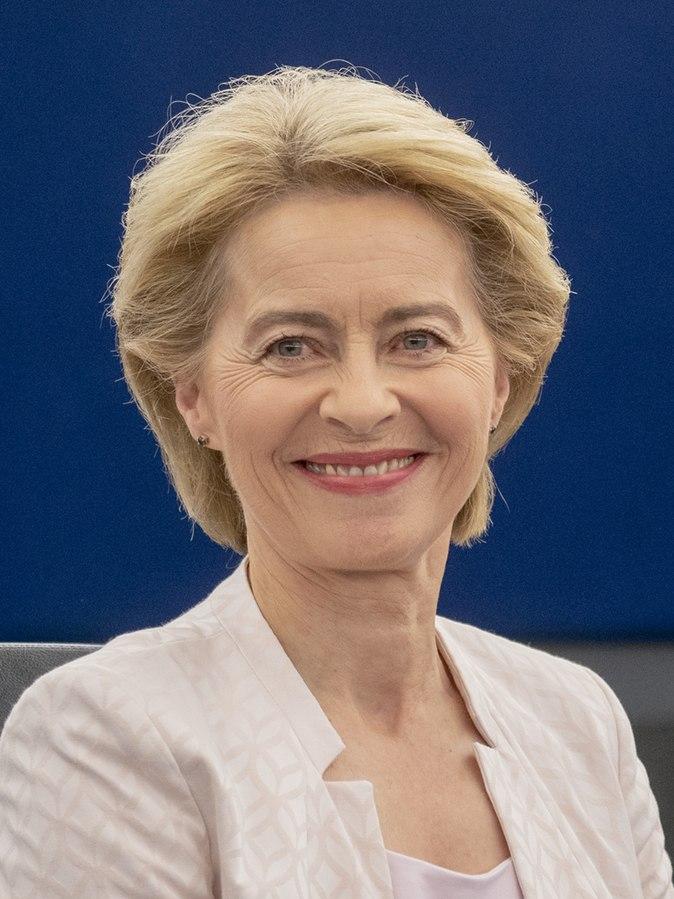
Ursula von der Leyen. CC-BY-4.0: © European Union 2019 – Source: EP
With the recent appointment of the former German Defence Minister Ursula von der Leyen as the first female President of the European Commission, Europe has a real opportunity to increase its ambition when it comes to environment protection and climate change in particular.
Based on her program she presented to the European Parliament in early July, below we list our four recommendations for the Commission President-elect as she begins interviewing nominees for Commissioners.
1. Maintain ambition on climate
We support Ms von der Leyen’s ambition for Europe to become the world’s first climate-neutral continent by 2050 and fully back her proposal, which she has promised in her first 100 days, for a European Climate Law, which will enshrine this into legislation.
Long terms goals are only useful insofar as they drive action in the short term, so to ensure climate neutrality by 2050, Europe needs to go beyond its current goal of at least a 40% cut in emissions by 2030. We therefore welcome the President-elect’s commitment to put in place measures to meet a 55% reduction which analysis of emissions trends has shown is easily achievable.
To get to the new legal goals we support her intention to extend the coverage of emissions trading in Europe and also believe incentives that enable industry to adapt in the full range of zero emissions technologies including electrification and CCS will be needed.
In increasing its own ambition it will be imperative that the EU works closely with other major blocs including China to instigate a race to the top in terms of emissions pledges offered under the Paris Agreement ratchet mechanism review in 2020.
2. A strategy on methane emissions from fossil fuels
If Europe is serious about achieving climate neutrality by 2050 and meeting its interim targets for 2030, it is imperative that the EU develops a strategy to address methane emissions from the oil, gas and coal industries.
Methane emissions contribute to air pollution and are a powerful contributor to global warming, representing 100 times the warming of CO2 per molecule over a decade. EDF studies have shown that methane emissions are often far higher than countries recognise as they are not being adequately monitored or regulated. Reducing methane is one of the most immediate steps we can take to slow the rate of warming now, even as we work towards the broader decarbonisation of the economy, and reducing methane from fossil fuel production and use is the most cost-effective strategy for getting those benefits now. The EU is by far the largest importer of gas in the world, and policies to deal with embedded emissions in its imports would have a major global impact on climate change. A comprehensive EU strategy on fossil methane must feature in Ms von der Leyen’s “Green Deal” and any gas focused legislation that is negotiated, without which her climate targets described above will become very difficult to meet.
3. Incentives for clean shipping and aviation
Both aviation and shipping have large emission footprints – each would be a global top-ten emitter country on its own – and together they are among the fastest-growing sources of greenhouse gas emissions.
We welcome the President-elect’s focus on the maritime and aviation sectors.
EDFE is working towards a global policy solution for both sectors in their respective UN governing bodies, and European Union leadership has been crucial for winning global action.
Robust global policy frameworks that drive investment in clean solutions can help ensure the rapid and efficient uptake of zero and low emissions technologies and fuels in shipping, where there are numerous options ready for deployment. Electrification and electro-fuels offer great promise as we set out in our report ‘Sailing on Solar’.
We welcome the President-elect’s focus on aviation as we are at an important time in the development of global rules seeking to limit its growing impact.
We will be actively engaging on both of these important issues and look forward to continued European Union leadership at home and internationally.
4. Air pollution and transport
Air pollution in Europe’s cities is a health crisis, but it is largely avoidable, since transport is the biggest contributor and zero emissions vehicles are now available and rapidly falling in price. So we are pleased that the President-elect says that Europe needs to move towards a zero-pollution ambition, encompassing air pollution.
Existing European air quality laws need rewriting to bring in a much clearer focus on protecting human health and getting at the root cause of the problem by urgently phasing out polluting combustion engines and boilers in urban environments. Despite years of effort on this issue Europe is falling behind, while other cities in China are making much quicker progress in cleaning urban transport systems.
We are delivering new air pollution insights and a strong case for action using an extensive low cost sensor network in our Breathe London project. The results will be made available to other cities via the C40 network, providing a blueprint others can adapt and follow.
EDFE looks forward to working with Ms von der Leyen and her Commission during the next mandate. We are ready to work with other stakeholders from across all sectors and contribute our expertise towards keeping Europe the global standard-bearer for environmental protection.